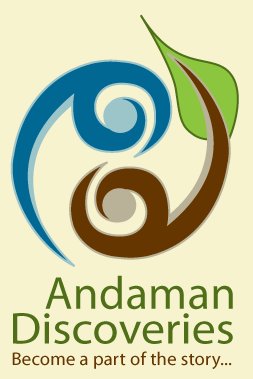
Lao, sometimes referred to as Laotian, is the official language of Laos and a significant language in the Isan region of northeastern Thailand. Spoken by over 7 million people in Laos and 23 million in Thailand, it serves as a vital link in the cultural and social fabric of these areas. It is written in the Lao script, an abugida that evolved from ancient Tai scripts.

Northeast Thailand or Isan consists of 20 provinces in northeastern Thailand. Isan is Thailand's largest region, on the Khorat Plateau, bordered by the Mekong River to the north and east, by Cambodia to the southeast and the Sankamphaeng Range south of Nakhon Ratchasima. To the west it is separated from northern and central Thailand by the Phetchabun Mountains. Isan covers 167,718 km2 (64,756 sq mi), making it about half the size of Germany and roughly the size of England and Wales. The total forest area is 25,203 km2 (9,731 sq mi) or 15 percent of Isan's area.

Udon Thani province is one of Thailand's seventy-six provinces (changwat) which lies in upper northeastern Thailand, also called Isan. It is bordered by the provinces of Nong Khai to the north, Sakon Nakhon to the east, Kalasin province to the southeast, Khon Kaen to the south, and Loei and Nong Bua Lamphu to the west. It occupies an area of 11,072 km2 (4,275 sq mi). The total forest area is 1,131 km2 (437 sq mi) or 10.2 percent of provincial area. The provincial capital is Udon Thani, the major city in the province.

Loei, is one of the more sparsely populated provinces (changwat) of Thailand. It lies in the Isan region of upper northeastern Thailand. Neighboring provinces are Nong Khai, Udon Thani, Nong Bua Lamphu, Khon Kaen, Phetchabun, and Phitsanulok. In the north it borders Xaignabouli and Vientiane province of Laos.

Nong Khai province was formerly the northernmost of the northeastern (Isan) provinces (changwat) of Thailand until its eight eastern districts were split off to form Thailand's newest province, Bueng Kan province, in 2011. Nong Khai province lies in upper northeastern Thailand. Nearby provinces are : Bueng Kan, Sakon Nakhon, Udon Thani, and Loei. To the north it borders Vientiane province, Vientiane Prefecture, and Bolikhamsai province of Laos.

Isan or Northeastern Thai refers to the local development of the Lao language in Thailand, after the political split of the Lao-speaking world at the Mekong River at the conclusion of the Franco-Siamese crisis of 1893. The language is still referred to as Lao by native speakers.

The Rocket Festival is a merit-making ceremony traditionally practiced by ethnic Lao people at the beginning of the wet season in various villages and municipalities in Northeastern Thailand and Laos. The festivities typically include music and dance performances, competitive processions of floats, dancers and musicians on the second day, and culminating on the third day with the competitive firing of homemade rockets. Local participants and sponsors take advantage of the occasion to enhance their social prestige, as is customary in traditional Buddhist folk festivals throughout Southeast Asia.
The Lao Nyaw, Thai Nyaw or Tai Yo are an ethnic group of Thailand, Cambodia and Laos, scattered throughout the provinces of Isan such as Nong Khai, Sakon Nakhon, Nakhon Phanom, and parts of Bolikhamxai and Khammouan provinces of Laos. They are also referred to as simply Nyaw or Yaw, depending on either the Lao, Isan, and Nyaw pronunciation, which all pronounce the initial consonant as, or the Thai pronunciation, which pronounces the initial consonant as.

Pak Chong is the westernmost district (amphoe) of Nakhon Ratchasima province, northeastern Thailand, and the main point of entry into Isan as the main road and rail lines cross the Dong Phaya Yen Mountains into the region. It is a popular tourist destination, especially among weekenders from Bangkok, and is home to many resorts and touristy attractions, in addition to the main entrance into Khao Yai National Park.

The Phuan people, ພວນ Phouan, pronounced[pʰúa̯n]), also known as Tai Phuan, Thai Puan or Lao Phuan, are a Theravada Buddhist Tai people spread out in small pockets over most of Thailand's Isan region with other groups scattered throughout central Thailand and Laos. There are also approximately 5000 Phuan in the Mongkol Borei District of Banteay Meanchey Province in Cambodia, as well in Battambang Province. According to the Ethnologue Report, the Phuan number 204,704 and that is split fairly evenly between populations in Laos and Thailand.
Phuan or Northeastern Lao is a Tai language spoken in Laos, Thailand and Cambodia.

Andaman Discoveries (AD) is a tourism social enterprise in Kuraburi, Phang Nga Province, Thailand. It is the continuation of North Andaman Tsunami Relief (NATR), a non-profit organization based in Thailand that provides assistance to tsunami-affected villages in the north Andaman Sea region. Andaman Discoveries has assumed the work of NATR, fostering long-term social, economic, and environmental sustainability and generating viable economic opportunities via training and marketing.

InterVol is a community volunteering charity based in the United Kingdom. InterVol support poverty reduction, conservation and education projects globally, as well as community volunteering based on university campuses in the United Kingdom. The charity is based at the University of Birmingham, Imperial College London, Lancaster University, University of Nottingham, Oxford Brookes University, and SOAS University of London.
Isara Charity Foundation is an international charity organization with projects based out of Nong Khai, Thailand. Isara's projects are primarily focused on education, but also extend to safety and environmental awareness.

Bueng Kan, also spelled Bung Kan, is the 76th province (changwat) of Thailand, established by the Act Establishing Changwat Bueng Kan, BE 2554 (2011) on 23 March 2011. The province, consisting of the districts (amphoe) partitioned off Nong Khai province, lies in upper northeastern Thailand also called Isan. It is named after its central district, Mueang Bueng Kan.

Thanaleng station, also known as Dongphosy station, is a railway station in Dongphosy village, Hadxayfong district, Vientiane Prefecture, Laos. It is 20 km (12 mi) east of the Lao capital city of Vientiane and 4 km (2.5 mi) north of the Lao-Thai border on the Mekong River. The station opened on 5 March 2009, becoming part of the first international railway link serving Laos. Originally intended for use as a passenger station, Lao officials have stated their intention to convert it to a rail freight terminal to provide a low-cost alternative to road freight, the main mode of transport for goods entering Thailand. The station provides a connection between Vientiane and the capital cities of three other ASEAN nations: Thailand, Malaysia, and Singapore, and several major Southeast Asian ports.
Bueng Kan is a town municipality in Mueang Bueng Kan district, in Bueng Kan province, Isan. It is the district capital and is on the Mekong River, opposite the Laotian town of Pakxan of Bolikhamsai province. It lies at the junction of Highways 212 and 222, 136 kilometres (85 mi) northeast of Nong Khai and 750 kilometres (466 mi) northeast of Bangkok. The economy is based on agriculture, with para rubber as the principal crop, and tourism.

Bolikhamsai is a province of Laos. Pakxan, Thaphabat, Pakkading, Borikhane, Viengthong, and Khamkeut are its districts and Pakxan is its capital city. The province is the site of the Nam Theun 2 Dam, the country's largest hydroelectric project.

Tourism in Cambodia is one of the most important sectors in the country's economy. In 2013, tourism arrivals increased by 17.5 percent year on year, with business travelers increasing 47 percent.
Pod Volunteer is a non-governmental volunteering organisation with an associated registered charity based in the United Kingdom.
















